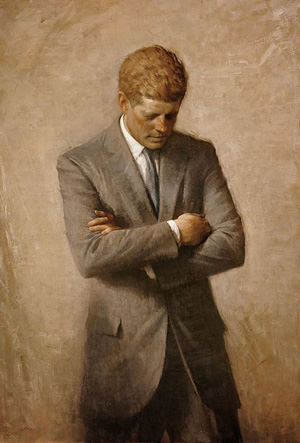The Kennedy Myth? The Kennedy Legacy?
This month alone, at least 140 books about our 35th president have been or will be released.
It was the usual suspects taping the Charlie Rose show last Monday: a quartet of writers who had written books about the life or the presidency of John F. Kennedy — Robert Dallek, Michael Beschloss, Jeff Greenfield and me, along with Jill Abramson, the editor of The New York Times.
The “Kennedy legacy” was the topic, of course. It is pretty hard to turn on the television these days without seeing us or authors like Doris Kearns Goodwin, Larry Sabato and a host of others. I have not counted, but somebody there said that 40,000 books have been written about our 35th president. I know that, this month alone, at least 140 have been or will be released, timed for the 50th anniversary of the assassination of the president on Nov. 22, 1963, in Dallas.Dallek said that he was dizzy from answering calls from newspapers and television networks around the world. Me, too. (Full disclosure: I am the general editor and Abramson wrote the foreword of one of those books, “The Kennedy Years: From the Pages of The New York Times.”)Most of the conversation during the taping was, predictably, about the national trauma of the assassination and the question of what Kennedy would have done in Vietnam if he had lived and won a second term. The consensus of the panel, with the exception of Greenfield, was that Kennedy probably would have started up the escalating trail blazed by President Lyndon Johnson, but he would not have gone as far as LBJ, who sent in more than 500,000 U.S. troops, 58,000 of whom never came home.It is called “Johnson’s War,” but Kennedy started it. There were only a couple hundred American military “trainers” in that country when JFK was elected, and there were 15,000 when he was killed. More important, Kennedy signed off on the military coup by South Vietnamese generals that ended on Nov. 1, 1963, with the murder of South Vietnam’s president, Ngo Dinh Diem. “We broke it, we owned it,” as Gen. Colin Powell said years later in a different context.Three weeks later, Kennedy himself was dead. The news from Dallas overwhelmed the news of Diem’s death and the incompetence of the parade of South Vietnamese generals we financed. Soon enough, Kennedy’s men — “the best and the brightest,” they were called — began a lifetime drumbeat of books and interviews asserting that their president planned to withdraw all American troops and military aid in his second term.Maybe, but I doubt it. As we have learned again and again, as history repeats itself, it is easier to get into other people’s wars than to get out.After the show, I heard a young woman, a photographer, say: “Wow! I never realized that Kennedy and Vietnam was to your generation what Princess Diana and 9/11 is to ours.”© 2013 UNIVERSAL UCLICK
Your support matters…Independent journalism is under threat and overshadowed by heavily funded mainstream media.
You can help level the playing field. Become a member.
Your tax-deductible contribution keeps us digging beneath the headlines to give you thought-provoking, investigative reporting and analysis that unearths what's really happening- without compromise.
Give today to support our courageous, independent journalists.






You need to be a supporter to comment.
There are currently no responses to this article.
Be the first to respond.